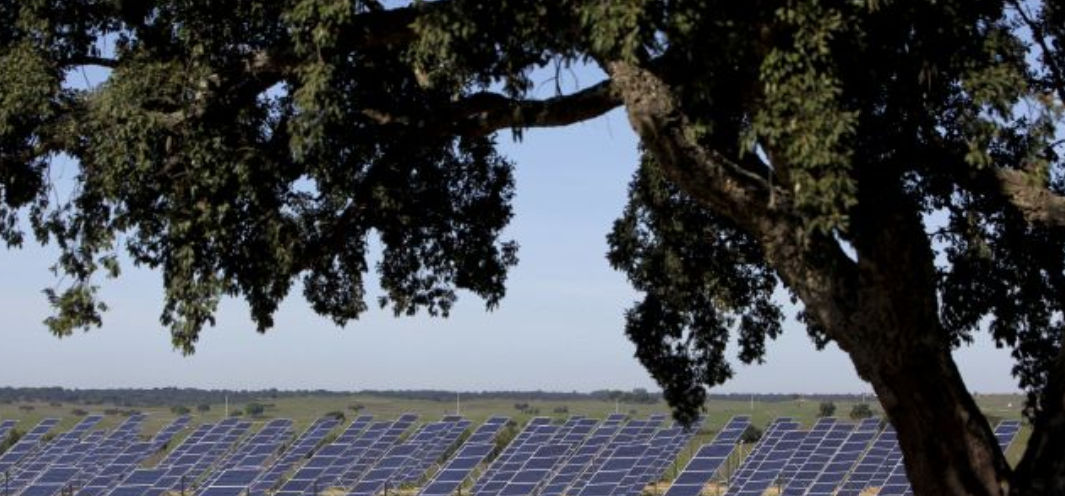
Portugal is one of the world’s most competitive countries where the generation of solar energy is concerned and planned new capacity will enable it to multiply its output by six by 2025, without state subsidies, according to its minister of economy.
“What we have been able to do is to persuade international investors of the country’s natural conditions make a clear and transparent regulatory framework to attract investment and create conditions for these investments to grow in a country that, in solar energy, is among the most competitive in the world,” Minister Manuel Caldeira Cabral, told journalists at the inauguration of a new solar plant at Ourique, in the Alentejo.
Dubbed Ourika!, the plant is the first large-scale solar facility in Europe to produce electricity on a market basis, without guaranteed feed-in tariffs or other state subsidies that result in costs to consumers and taxpayers.
The plant cost €35 million to build and has an installed peak generating capacity of 46MW. Over 30 years it is to generate 80GWh per year - enough to power 25,000 households.
According to the minister, 1,000MW of solar capacity is already installed in Portugal and there is “a little over one thousand megawatts in the process of licensing” in the form of new solar plants that are to operate without subsidies.
With existing licensed capacity, Portugal should be able to “more than triple” solar energy production by 2022, and “multiply it by six” by 2025 – all without state aid.
“This shows that Portugal today is a competitive country in terms of renewable energies without the need for subsidies,” the minister said, adding that the “very strong expansion of solar” and the boom in new plants stem from the country’s “great conditions” for solar energy production, progress in solar technology and the country’s “stable regulatory framework, which gives investors confidence” and allows it to “be competitive at market prices”.
Portugal, he said, “has the best conditions, not only in Europe, but [also] globally, for the production of solar energy and what can be seen is that, in fact, investors have responded well.”
In the long-term the current strategy will lead to lower electricity prices in Portugal, he promised, pledging the government to “continue with a consistent strategy of increasing the share of renewables in energy production” but “increasingly burdening consumers less”.
Meanwhile, he added, the new plants “guarantee” that Portugal will become “ever more an energy exporter … that fulfils and even exceeds the environmental targets set in the European Union” and that will “gradually” enjoy lower energy costs, so making business more competitive and boosting families’ purchasing power.



